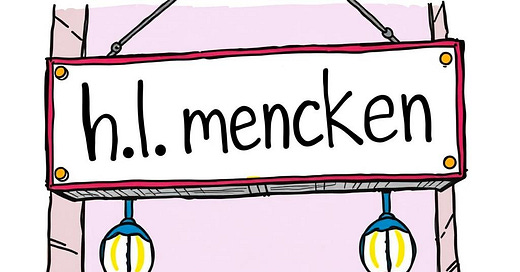Every so often, I plunge headlong into a Mencken spree, a vice I’ve nursed since the early 1990s when I first stumbled into Ann Arbor’s Dawn Treader Bookstore and smelled those old books (that odd but pleasing scent, I’m told, comes from vanilla releasing from the aging paper). I fished out three tattered paperback collections of Mencken’s essays. They …
Keep reading with a 7-day free trial
Subscribe to Eric Scheske's Substack to keep reading this post and get 7 days of free access to the full post archives.




